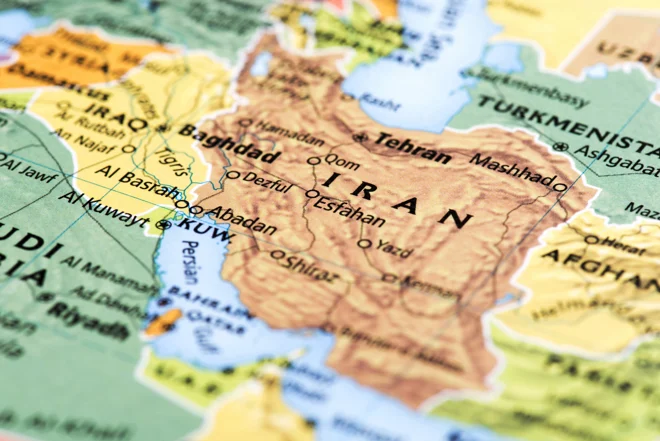The definition of retirement is evolving and although retirement almost certainly means a change of lifestyle, today it rarely means stopping work altogether.
Individuals may decide to reduce their working hours gradually, retrain or change jobs to pursue an interest or passion, take up an advisory or charitable role alongside spending more time with family and on the proverbial golf course.
Whatever path retirement takes it is important to stop and ask yourself; what does the future look like? Whilst this may seem daunting, thinking about how life will change and what your priorities are is something our Wealth Planners are well placed to help with.
Here are some of the factors to consider in the run up to retirement:
What income do I need in retirement?
This answer is fundamental in determining the achievability of a chosen lifestyle. Whilst we may use the term “income” our expenditure may of course be met from a combination of income and capital and indeed this may often be the most tax efficient use of the funds available to us. It is likely that expenditure in the earlier retirement years will be higher than in later years as travel and the more active pursuits prevail. The existence of financial dependents, whether these are our parents or our children, will have an initial impact but will change over time.
Careful consideration should be given to the repayment of any debt at a point when there is no longer any regular earned income. This will be both an investment decision and a risk decision and both of equal importance. At its most simplistic, is there a greater potential return by using capital for investment than by using it to repay debt and how comfortable am I in retirement with maintaining debt, for how long and at what level?
What investments and pensions do I have?
Consideration of the optimum use of available assets is the best place to start. It is appropriate at this stage to revisit the overall asset ownership and income flows of husband and wife to ensure that optimum use is made of all tax reliefs and allowances. Too often, it is the case that the majority of the income-earning assets are held in the name of one spouse with the other partner having very little taxable income. Whilst direct ownership of assets is often the answer, other ownership structures which provide tax advantages should also be considered. The re-arrangement of assets and income at this time can really make a significant difference to the after tax income, particularly in the case of married couples and civil partnerships.
Historically, pensions have always been associated with retirement and the delivery of a secure income. Whilst defined benefit or final salary pension schemes, which provide a guaranteed income indexed by inflation with a spouse’s benefit, are a distant memory for many, some such schemes still remain and their value cannot be overrated.
However, recent changes to pension legislation mean that for those who have accumulated wealth outside of pension arrangements, the pension itself has a much wider use in overall wealth planning as an estate planning tool rather than a retirement income generator. For many, pension provision during their working life will have seen the accumulation of several different pension arrangements, often without any consideration of consolidation to produce consistency of asset allocation, risk and return. A thorough review at any stage is a valuable exercise in order to extract maximum value from these tax efficient arrangements.
How much risk should I take?
Importantly, the retirement years should bring about a reappraisal of investment risk tolerance and, importantly, capacity for loss. The former is both an objective and subjective assessment of tolerance whilst the latter is an indication of the level of investment loss that an individual/family is able to sustain without it unduly affecting their lifestyle. During our working lives, the existence of regular earned income and, later in our careers, surplus income enables more risk to be taken on the basis that, in the event of investment losses, capital could be topped up by surplus income. This may not be the case any longer and so both the risk tolerance and the capacity for loss may reduce. This will obviously be influenced by both the level of accumulated capital and possible inheritances but it is rare to see an increase in both risk tolerance and capacity for loss during the retirement years.
Do I need to protect my family now and in the future?
Family protection, particularly through various forms of life cover, is often provided through a business enterprise and designed to provide capital/income to the survivor in the event of untimely death. This “benefit” will disappear at retirement and the option of personal provision of life cover should be considered. If individuals have accumulated significant wealth, then the decision is often that they are effectively self-insured with no requirement for further third party protection. However, in other circumstances, perhaps where there are financial dependents, ongoing family protection, even for relatively short periods of time, may be advisable and can often be provided at relatively reasonable premium cost.
Thoughts also turn to the next generation, estate planning and how we might pass assets on in a tax efficient manner. In tandem with a review of Wills to ensure firstly that a valid Will is in place and secondly that it is consistent with our wishes for the eventual distribution of the estate, once we are comfortable that sufficient income and capital is available to support our chosen lifestyle we can look at opportunities to gift assets to support family, charities and others. An assessment of the inheritance tax liability that will arise in the future is a good place to start.
How do I put this all together in a plan?
A Wealth Plan, tailored to individual circumstances and personal objectives, will incorporate these and many other issues. It will focus on tax efficiency and be supported
by a cash flow plan which will highlight sustainability of income flows, the effect of investment market movements and opportunities for gifting assets to the next generation either outright or whilst retaining some control. In reality, this is the application of the same level of discipline to personal financial affairs as will have been applied to business affairs during our working lives and is designed to deliver an enjoyable and financially secure retirement.
Planning for retirement, whatever that means to you, is important and we always recommend taking professional advice. For further information please contact your usual Brown Shipley adviser.
Roger Clark
Head of Wealth Management



